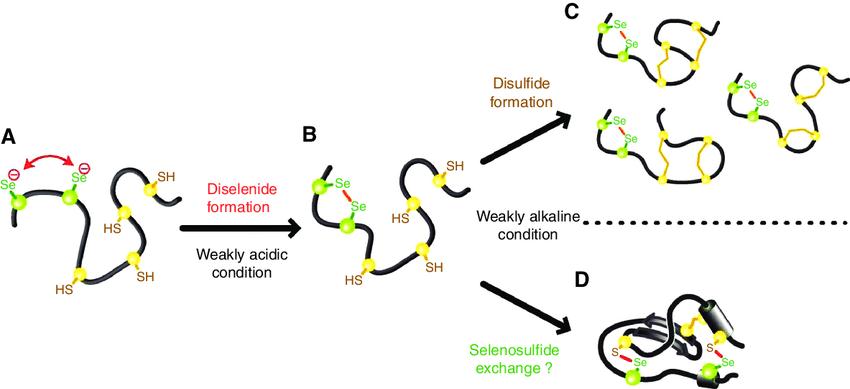A New Engineering Strain for Disulphide Bonded Protein Expression
The advantages of recombinant expression of eukaryotic proteins with E. coli prokaryotic system are low cost and high yield. Still, one of its most significant drawbacks is that many of the expressed eukaryotic proteins are in the form of inclusion bodies, that is, the inactive form of the precipitated protein. To make the inclusion body protein become an active protein, it is necessary to dissolve it with a high concentration of guanidine hydrochloride or urea and then use various methods to make it functional again. However, protein renaturation is time-consuming, costly, and has a low renaturation rate. Since the renaturation of inclusion body proteins is still unclear, and the renaturation conditions of different proteins are different, especially the renaturation of proteins containing disulfide bonds is very difficult, and there are many problems in large-scale production.
However, most proteins and enzymes of biotechnological importance contain structurally stabilizing disulfide bonds. Disulfide bond formation is an essential post-translational modification required for many proteins to acquire their native functional structures. Currently, it is difficult for the biotechnology industry to produce these proteins on a large scale. Even expression strains capable of forming disulfide bonds are less efficient because there is no active mechanism for disulfide bond formation and thus often require refolding or production in mammalian cells, which results in increased experimental time and expense. Therefore, modifying and optimizing the formation of disulfide bonds in E. coli cells has always been the subject of researchers' research.

Scientists engineered and obtained a strain that can produce recombinant proteins with disulfide activity in bacteria to aid protein research. This system mimics the natural systems by introducing a catalyst for disulfide bond formation and a catalyst for disulfide isomerization in the E. coli cytoplasm to promote disulfide bond formation in recombinant proteins. This system can form disulfide bonds in wild-type E. coli, reduce the intact pathway, and allow active eukaryotic proteins to produce disulfide bonds in the cytoplasm. This strain can provide a powerful boost in protein research and show great potential in drug development and optimization.
The Advantages of this platform include:
- Producing recombinant activity protein
- Producing recombinant protein with disulfide bonds
- Protein renaturation is not required
- Higher protein yield
Potential Applications
- Production of proteins
- Research on the proteins, enzymes, and drug
- Protein and enzyme development
Profacgen is a state-of-the-art protein service provider. We provide custom protein services in the biological sciences, enabling access to the latest tools, techniques, and expertise with competitive pricing and rapid turnaround time. We serve a broad spectrum of industrial and academic clients committed to delivering high-quality data and customer services.
Please do not hesitate to contact us for more details if you are interested in this new method, and we will provide considerate service for you. At the same time, we also offer other services and biomarker products; please move to our website for more details.
Reference
- Hidaka, Yuji & Shimamoto, Shigeru. (2013). Folding of peptides and proteins: Role of disulfide bonds, recent developments. Biomolecular concepts. 4. 597-604. 10.1515/bmc-2013-0022.